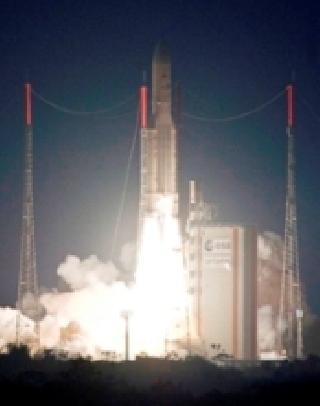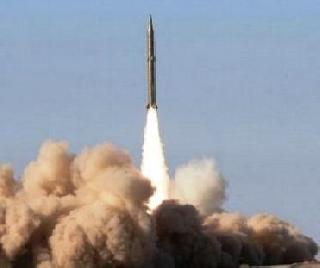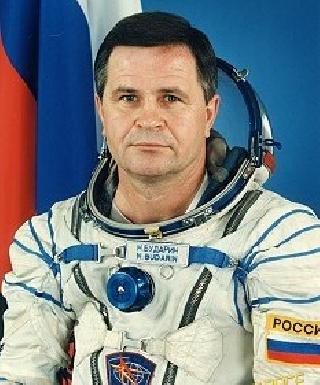
Ariane 5 lifts off from the spaceport carrying the Yahsat Y1A and Intelsat New Dawn satellites. An Arianespace photo
KOUROU (BNS): Marking the second successful launch for this year, an Ariane 5 rocket has placed in orbit two telecommunications satellites for UAE and Africa.
The heavy-lift launch vehicle blasted off with the dual payload from the Kourou spaceport, French Guiana at 21:37 GMT Friday.
The rocket’s cryogenic, liquid-propellant main engine was ignited first. Seven seconds later, the solid-propellant boosters also fired, and the vehicle lifted off a fraction of a second later.
The two satellites – UAE's Yahsat Y1A and Africa's Intelsat New Dawn – were accurately injected into their transfer orbits about 27 minutes and 35 minutes after liftoff, respectively.
"Adding to this mission’s milestones was the lift performance record for Ariane 5: delivering a total mass of 10,050 kg to geostationary transfer orbit, of which 8,956 kg was the combined weight of its two satellite payloads," Arianespace said.
Lifting off at 6:37 p.m. local time, the Ariane 5 waded through a partial cloud cover at sunset and continued its downrange flight in clear skies.
This was the 57th Ariane 5 mission to date and the second in 2011.
The Yahsat Y1A, an initial telecommunications relay spacecraft for Al Yah Satellite Communications Company (Yahsat) built by an industrial team of EADS Astrium and Thales Alenia Space, will provide innovative broadband solutions for Internet, business data and high-definition television services to institutional and commercial customers in the Middle East, Africa, Europe and Southeast Asia.
The Intelsat New Dawn is the first-ever African private sector communications satellite that will offer a wide range of services across Africa, including telephony, Internet, media and data networks.
 Previous Article
Previous Article Next Article
Next Article













The Indian Air Force, in its flight trials evaluation report submitted before the Defence Ministry l..
view articleAn insight into the Medium Multi-Role Combat Aircraft competition...
view articleSky enthusiasts can now spot the International Space Station (ISS) commanded by Indian-American astr..
view article